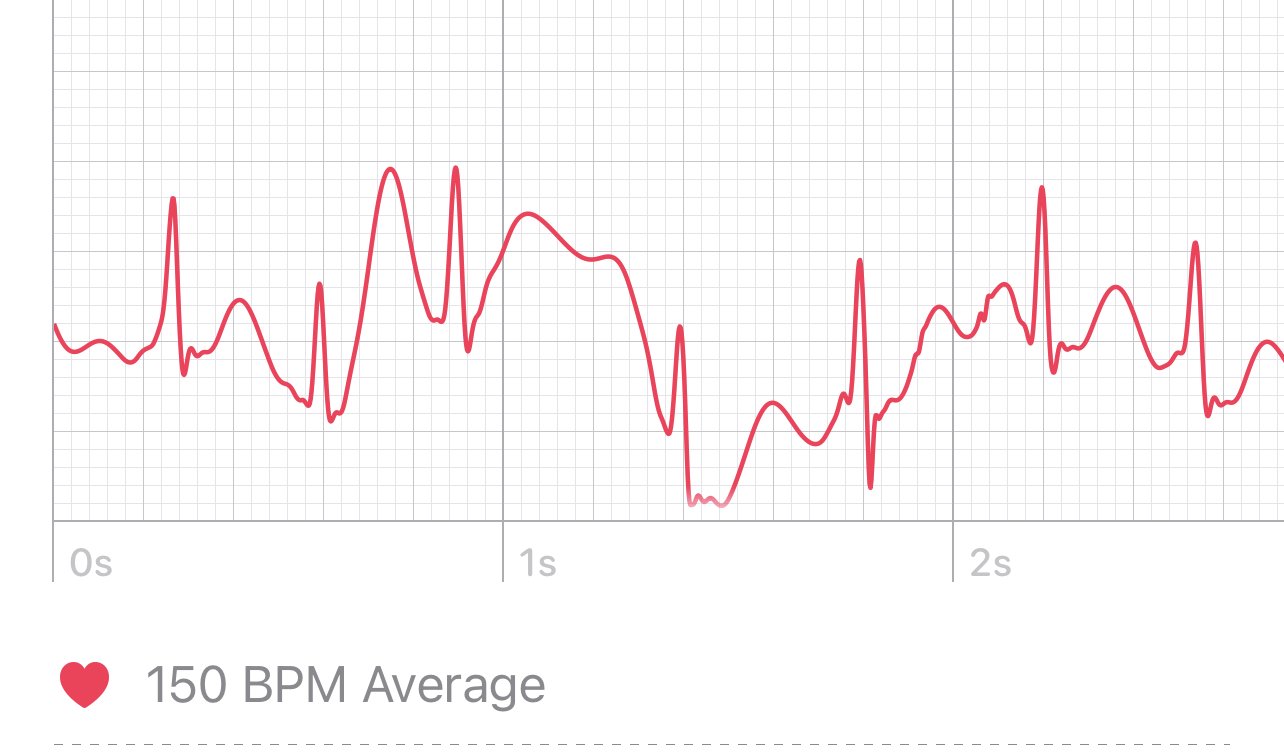Atrial fibrillation & exercise
Atrial fibrillation, also known as AFib, is a type of irregular heartbeat that can be influenced by various factors, including exercise. Exercise can have both positive and negative effects on atrial fibrillation, depending on the individual and the type, duration, and intensity of exercise.
This was my actual heart rate while riding while my heart went into fibulatiuon.
Here are some important points to consider when it comes to exercise and atrial fibrillation:
Consult with your doctor:
If you have atrial fibrillation or any other heart condition, it's crucial to talk to your healthcare provider before starting or changing an exercise routine. Your doctor can provide personalized recommendations based on your specific health condition and overall fitness level.
Moderate exercise is generally beneficial:
In general, regular moderate-intensity exercise can be beneficial for heart health, including for individuals with atrial fibrillation. Moderate exercise, such as brisk walking, cycling, or swimming, can help improve cardiovascular fitness, lower blood pressure, and reduce stress, which can be beneficial for managing atrial fibrillation.
Avoid triggers:
Some forms of exercise may trigger atrial fibrillation episodes in certain individuals. High-intensity exercises, such as vigorous running or heavy weightlifting, can sometimes trigger AFib episodes in susceptible individuals. Pay attention to your body and be aware of any signs or symptoms of atrial fibrillation during or after exercise. If you notice any irregular heartbeats, chest pain, or difficulty breathing, stop exercising and seek medical attention.
Stay hydrated and manage electrolyte levels:
Proper hydration and electrolyte balance are important for heart health and can help prevent dehydration and electrolyte imbalances that may contribute to atrial fibrillation. Make sure to drink enough water before, during, and after exercise, especially during prolonged or intense workouts.
Avoid excessive fatigue and overtraining:
Overtraining or excessive fatigue can increase the risk of atrial fibrillation. It's important to allow enough time for rest and recovery between exercise sessions, especially if you have atrial fibrillation. Listen to your body, and avoid pushing yourself too hard, too fast, or too frequently, as it may increase the risk of atrial fibrillation episodes.
Be mindful of medications:
Some medications used to manage atrial fibrillation, such as anti-arrhythmic medications, may affect exercise tolerance or response to exercise. Talk to your doctor about any medications you are taking and how they may impact your exercise routine.
Consider cardiac rehabilitation:
Cardiac rehabilitation programs supervised by healthcare professionals can be beneficial for individuals with atrial fibrillation. These programs provide structured exercise programs tailored
While I do have this issue I know how to deal with it and I take the right action that apply for the situation, Be honest and know you limits.


